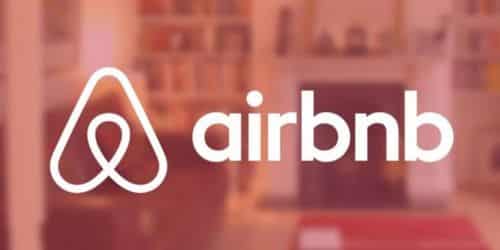Home is a highly personal place. Even if a family member tries to change something, we become agitated. Who would have thought that a few years ago, homeowners would be willing to share their homes with strangers? Who would have guessed that a company could be developed in this niche? Airbnb’s business model has revolutionized the hotel industry in ways no one could have predicted.
With over 4 million Hosts and over 1 billion guest arrivals in over 100,000 cities and towns in practically every country, Airbnb has grown into a behemoth without owning a single property. That is the allure of technological disruptors. As a curious business enthusiast, knowing about the business strategy of Airbnb and how it makes money piqued my interest. Here we’ll go in-depth to see how Airbnb makes money and its acquisitions till date.
A Brief History of Airbnb
The idea for Airbnb arose after its creators, Brian Chesky and Joe Gebbia, converted their San Francisco apartment’s living room into a makeshift bed and breakfast. To offset the exorbitant rent, the couple rented the room to travelers. In 2008, the two co-founded, along with Nathan Blecharczyk, a website for short-term rentals that would later become Airbnb. In 2018, the company’s leadership changed many times. After Laurence Tosi left the firm in 2018, Airbnb announced hiring of Dave Stephenson as its chief financial officer (CFO). Airbnb hired Belinda Johnson as its first chief operating officer (COO).
In 2009, the company began raising funds. It then moved into the international market, with operations in the United Kingdom, Germany, France, Spain, Russia, and Brazil. Other services provided by the company include:
- Airbnb Experiences allow renters to participate in cooking courses, tours, and adventures.
- Airbnb Luxe: Renters can use this section to identify houses suitable for special occasions or holidays. These postings include entire residences and private rooms with private or ensuite bathrooms.
- Airbnb Plus: This segment provides highly rated properties with standard facilities.
As a middleman between hosts and visitors, Airbnb provides a well-established marketplace platform where hosts and travelers can safely exchange products and services.
How Airbnb Works
An in-depth evaluation system gives value to prospective hosts and guests wanting to satisfy their housing needs in a peer-to-peer model like Airbnb. Participants in internet markets trust reviews, allowing individuals to buy quality products rather than purchasing lemons safely.
Hosts submit their property data on Airbnb and other aspects such as pricing, offered facilities, etc.
Airbnb offers the option of bringing a professional photographer (if one is available) to the property location to capture high-quality images.
Travelers looking for a hotel in the area where they want to stay and compare available options based on pricing, facilities, and other factors.
The booking is made through Airbnb, and the traveler pays the amount specified by the host plus a 3% transaction charge.
The host approves the booking. The traveler stays there, and Airbnb pays the host after deducting their commission.
They publish reviews from hosts and traveler to benefit the larger community.
What Is Airbnb Plus?
The Airbnb Plus program gives travelers access to homes recognized for their extraordinary quality, comfort, and decor. A host must meet over 300 points to be approved as a Plus listing on Airbnb.
The Airbnb Plus program focuses on recognizing homes that achieve a high standard of quality and design. Airbnb’s business model is changing.
The Uber business model has become increasingly differentiated to accommodate various consumer budgets and tastes, such as premium automobiles, limousines, etc. Similarly, Airbnb follows the same strategy and has produced many offerings to appeal to clients with varying budgets and lifestyle preferences.
What Is Airbnb Luxe?
Airbnb Luxe provides immaculately built apartments with luxury facilities, services, and a dedicated trip designer.
Airbnb is expanding its rental options to include some of the world’s most expensive and luxury properties. The new Airbnb Luxe category is intended for guests willing to pay more than $1,000 per night for thoughtfully built, luxury private houses with stunning views and top-of-the-line amenities.
Airbnb Luxe is based on Airbnb’s extensive knowledge of premium travel garnered through the 2017 acquisition of Luxury Retreats. This new category includes almost 2,000 handpicked homes from around the world, each of which has undergone rigorous examination across 300-plus criteria to fulfill requirements in both design and function.
How Does Airbnb Make Money?
Airbnb makes money by charging visitors service fees, value-added taxes, and exchange rates for each night they stay. Let’s see how Airbnb makes money from its different business segments.
#1. Service fee collection
Airbnb charges service fees that hosts and guests must pay when posting a listing and booking a stay on their platform. The hosts are responsible for the majority of service fees because they are the people who provide housing for the guests.
Every time a booking is finalized through a guest, hosts must pay an additional 3% fee. This 3% fee covers processing costs for guests who pay to stay at a host’s accommodation facility through the Airbnb website.
#2. Value-added tax collection
In addition to the service costs, Airbnb levies a value-added tax on guests from Iceland, South Africa, Norway, the European Union, and Switzerland. These value-added taxes will be applied to hosts’ income when a booking is completed as an additional cost for hosts who use the platform to offer lodging services.
#3. Exchange Rates
If guests pay for their booking in a currency other than the currency of the country they are visiting, they will be charged exchange rates specified by Airbnb. These exchange rates benefit the organization by keeping currencies stable.
What Distinguishes Airbnb’s Business Model?
Travel is one of the largest industries in the world, and its approach has been commoditized. The travel business has grown by providing uniform lodgings in congested hotel districts and famous sites and activities. This one-size-fits-all attitude has limited a person’s access to the globe, and as a result, visitors are frequently left feeling like outsiders in the locations they visit.
Airbnb has enabled global home-sharing and created a new travel category. Rather than visiting as tourists and feeling like strangers, Airbnb visitors may stay in communities where people live, have authentic experiences, live like locals, and spend time with locals.
Hosts and guests can contact them before booking, pay securely, and provide evaluations after their stays or experiences. After a stay, guests and hosts can rate each other using the Airbnb review system. A mechanism that tries to promote accuracy and neutrality prevents hosts and guests from seeing evaluations until both have filed a review or the review window has closed.
Airbnb Value Proposition
The Airbnb business model primarily benefits two stakeholders: hosts and guests. Let us attempt to comprehend the value proposition of Airbnb’s business model for each.
Airbnb hosts are the foundation of the company’s business model and community. Airbnb has built a community of hosts from all walks of life, with over 7 million listings on its site. Surprisingly, 90% of Airbnb hosts are regular people ready to share their homes and stories with strangers. But why are they hosting?
Hosts are primarily motivated by three factors.
- To supplement one’s income. According to Airbnb’s SEC filing, hosts have earned more than $110 billion since the company’s inception in 2008.
- To familiarize foreign visitors with their areas and culture.
- To share their knowledge and enthusiasm.
Airbnb’s value offer for hosts is based on its platform and tools, which allow hosts to be successful while still providing a high-quality experience.
Hosts can serve customers from all around the world. Within four days of becoming available, 50% of hosts obtain a booking, and 75% receive a booking within 16 days.
Hosts have access to more innovative pricing and scheduling tools: These tools assist hosts in determining pricing depending on a listing’s kind and location, the season, predicted demand, and other variables. Airbnb hosts may manage their calendars and accept, track, and manage upcoming reservations.
On its platform, Airbnb handles all payments for hosts, including collecting payments from visitors and processing payments to hosts.
- Host Guarantee Program: In the event of third-party claims for personal injury or property damage, hosts receive up to $1 million in property damage protection for each listing.
- Hosts are aware of the caliber of their guests: Other hosts rate the visitors’ experiences, and the platform helps future hosts build trust.
Read Also: HOW TO START AN AIRBNB BUSINESS
Guests Airbnb serves guests from various cultures and locations looking for everything from low-cost to luxurious accommodations in metropolitan cities and remote towns. In 2019, 54 million active bookers globally booked 327 million nights and experiences on its platform, and over 825 million guests had arrived on Airbnb since its inception. As the site recovers from Covid, 2019 was the finest year for Airbnb.
Airbnb’s value proposition for visitors is based on its ability to provide travelers with real experiences. Let’s take a closer look at this point:
- Guests have the opportunity to live like locals: Guests can feel like part of a local community (unlike a hotel stay) and explore a world right outside their door by visiting local neighborhood coffeehouses, stores, groceries, restaurants, bakeries, parks, hikes, and bike trails. According to an Airbnb poll, 74% of guests responded that their desire to explore a specific neighborhood influenced their decision to use Airbnb.
- Even on vacation, guests might feel at ease: Airbnb spaces include all of the comforts of a traditional house. Hosts can provide their visitors with huge backyards, washing machines, pleasant living rooms, fully-stocked kitchens, pools, and book collections.
- Guests have the assurance of a trusted platform: Guests can rely on reviews from the traveler’s community and our guest refund policy, which guarantees that Airbnb will rebook or reimburse a guest if a listing does not match Airbnb’s hosting standards.
Airbnb Acquisitions
- Oyo (April 2019): The company invested $100 million in the fast-growing Indian hotel chain Oyo, and in March, it purchased the booking site Hotelnight.
- In 2016, it also developed a “Experiences” branch, which allows customers to attempt cooking, excursions, and other activities in the locations they visit.
- Accoleo (June 2011): Based in Hamburg, Accoleo provided an Airbnb-like network for rental houses throughout Germany.
- Crashpadder (March 2012): a London-based version of Airbnb that had grown to 7,000 hosts in 100 countries by the time Airbnb purchased it.
- DailyBooth (July 2012): Jon Wheatley and Ryan Amos created DailyBooth, a social networking app that allows users to photoblog their “life in photos.”
- Fondu (October 2012): Fondu was a Yelp-like website and smartphone app founded by Gauri Manglik, Orion Burt, and Mike Lewis.
- Localmind (December 2012): Lenny Rachitsky and Beau Haugh founded Localmind, a question-and-answer tool allowing individuals to inquire about neighborhood activities.
- Pencil Labs (December 2014): Carla Pellicano and Han Shu formed Pencil Labs in Cambridge, Massachusetts, and developed Wyth, a scheduling tool that helped users coordinate meet-ups by syncing their messages, emails, and calendars.
- Vamo (September 2015): Vamo was a travel company launched by former Facebook executive Ari Steinberg that assisted customers in planning complex or multi-city vacations.
- Trip4real (September 2015): Gloria Molins, a Barcelona-based entrepreneur, established Trip4real. Trip4real was a website connecting travelers with local activities and experiences they could arrange in advance.
- Lapka (September 2015): Vadik Marmeladov launched Lapka, an unknown, boutique Russian design business that wanted to reimagine medical and other sensor-based gadgets “into affordable, accessible, and inventive accessories.”
Read Also: AFFILIATE AIRBNB: Top 2023 Alternatives for Optimal Results(Updated)
- ChangeCoin (April 2016): ChangeCoin, developed by Nick Sullivan, enables users to tip others on social networks such as Twitter and Reddit using a blockchain-based digital currency via a service called ChangeTip.
- Minbox (May 2016): Airbnb was tight-lipped about the acquisition, which Business Insider first reported on in January 2020. It’s unclear how, if at all, Airbnb utilized Minbox’s technology, either internally or into its product.
- Proprly (May 2016): Proprly was a property management firm launched in 2013 by Randy Engler that assisted short-term rental owners with cleaning, guest check-in, and other aspects of the rental process.
- Bold Financial Technologies (November 2016): Bold, founded in 2014 by Sean Safahi and Noah Spirakus, sought to make international payments safer and more convenient for major platforms with many receivers worldwide.
- Luxury Retreats (February 2017): Luxury Retreats, founded by Joe Poulin in Montreal, allows travelers to reserve luxurious holiday properties in exotic locations.
- Tilt (February 2017): Tilt was an online payment and crowdfunding platform developed by James Beshara, Karolyn Baxter, and Khaled Hussein that Beshara previously described to Business Insider as “the digital counterpart of putting money in a hat.”
- Lutz Ahrens and Martin Tischer created fewoVista, one of Germany’s earliest online marketplaces for vacation rentals and homes, in 1998, a decade before Airbnb’s founders rented out an air mattress in their Los Angeles apartment.
Read Also: STARTING AN AIRBNB BUSINESS: Steps in Starting an Airbnb Business
- Vacaleo (April 2017): In 2014, as other platforms such as Airbnb were taking popularity, fewoVista founders Lutz Ahren and Martin Ticher launched Vacaleo, a comparable startup. Vacaleo, a “meta” search engine, allowed users to search for vacation rentals across numerous websites, claiming to have over six million listings.
- Deco Software (May 2017): Founders Devin Abbott, David Chen, Spencer Liolios, and Gavin Owens established Deco as a platform to accelerate mobile app development and “bridge the gap between designers and engineers.”
- Trooly (June 2017): Trooly, the brainchild of Savi Baveja, Nilesh Dalvi, and Anish Das Sarma, aims to make background checks faster and more reliable by analyzing information on persons gathered from the dark web to public databases.
- AdBasis (November 2017): Jason Puckett and Joe DiVita founded AdBasis, an ad testing and optimization platform aiming to “bring a scientific procedure and approach to digital advertising creative.”
- Accomable (November 2017): Srin Madipalli and Martyn Sibley, two friends with spinal muscular atrophy, established Accomable to make it easier for travelers with disabilities to find accessible places to stay.
- Koko (November 2018): According to its website, Koko was a program that attempted to keep online communities safe “by utilizing AI to identify harmful actors and damaging content” in real-time. It was founded as an MIT project by Fraser Kelton, Kareem Kouddous, and Robert Morris.
Related Articles: HOW DOES UBER MAKE MONEY? All You Need To Know
- Eliot (November 2018): Eliot, founded in 2017 by Edouard Tabet, was a real-time pricing calculator that forecasted “short-term rental revenue, trends, and price surge events,” according to its website.
- Luckey (December 2018): Luckey is a Paris-based property management software for short-term rentals founded by Aurélien Malfait, David Barbe, and Félix Malfait.
- Gaest (January 2019): Gaest was a Danish firm started by Anders Boelskifte Mogensen, Chris Kjaer Srensen, Christian Schwarz Lausten, and Jonas Grau Sigtenbjerggaard that allowed users to rent out meeting places for short periods of time.
- HotelTonight (March 2019): Founded by Christopher Bailey, Jared Simon, and Samuel Shank, HotelTonight allows consumers to locate same-day savings on hotels nearby.
- Urbandoor (August 2019): Urbandoor was a marketplace that connected business travelers with furnished flats for extended stays and relocations. It was founded by Erik Eccles, Benjamin Renaud, and Zack Chandler. According to Airbnb, the number of business trips booked on its platform tripled in 2016, accounting for 15% of total reservations. Airbnb increased its supply of business-friendly properties by acquiring Urbandoor.
Changes to Airbnb’s Business Model
Initially, the Airbnb business model relied on homeowners renting out rooms to travelers. However, Airbnb has gradually expanded into the hotel business since its humble beginnings in 2008.
Airbnb allows hotels, owners, and commercial groups to list their rooms. Airbnb is now directly competing with other hotel booking services like booking.com.
People are becoming more interested in activities that produce shared memories. As a result, Airbnb debuted experiences in 2016. They are now aggressively seeking professionals to create various experiences for Airbnb guests.
Cooking workshops, graffiti tours, painting, and other activities are available. The breadth and depth of accessible experiences foster a new ecosystem of partners and opportunities for Airbnb and its consumers.
Problem With the Legality of Airbnb
Despite its rapid expansion, Airbnb nevertheless faces significant obstacles. Some cities and countries are tightening down on Airbnb usage. This is because the service provided by Airbnb can be considered a short-term rental, which raises several legal concerns.
As a result, double-check if the destination is acceptable to Airbnb before renting. Some unhappy homeowners have found themselves in legal problems after accidentally renting out their residences without realizing it was unlawful in their city.
The Airbnb business model and its IPO will put additional pressure on Airbnb to grow regionally. As a result, Airbnb will require significant legal expertise specific to each country.
Conclusion
Airbnb has challenged the traditional hotel sector and revolutionized how people live while on vacation. Airbnb has shifted homeowners’ mindsets from maintaining the unutilized piece of their property to systematically employing it to make money.
Despite its size, Airbnb is not complacent. Airbnb appears to have a strong growth plan. The company continues to invest in growing the size and quality of its Host and Guest communities and engaging them through initiatives.
Airbnb projects a $1.5 trillion serviceable addressable market (“SAM”) and a $3.4 trillion total addressable market (“TAM”). The company hasn’t even gotten the icing on the cake, with less than $50 billion in gross bookings on its platform. Let us see how Airbnb consumes the entire cake in the future years.
Related Articles
- AFFILIATE AIRBNB: Top 2023 Alternatives for Optimal Results(Updated)
- LONG TERM RENTAL: What You Need to Know
- What Is Dynamic Pricing? How It Works with Examples
- HOSPITALITY MANAGEMENT SYSTEM: Best System Software 2023
- STARTING AN AIRBNB BUSINESS: Steps in Starting an Airbnb Business






